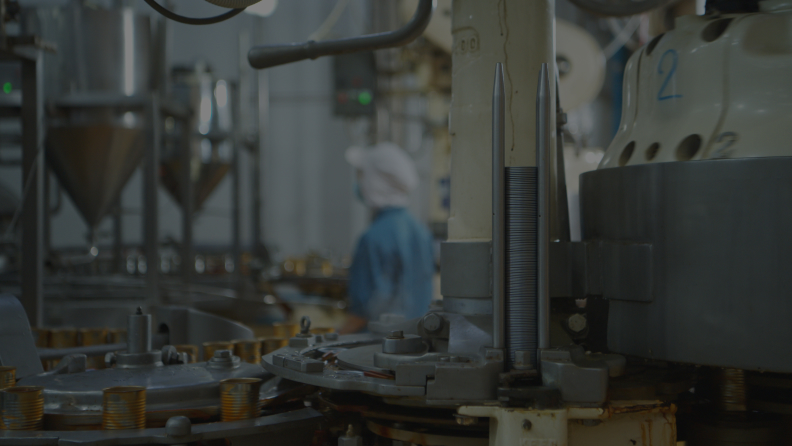Pakistan Industries and Production Division: Driving Economic Growth through Industrial Development

The Ministry of Industries and Production oversees the Industries and Production Division, a cornerstone of Pakistan’s economic framework. This division is responsible for formulating policies, promoting industrialization, and enhancing production capabilities across various sectors. It plays a pivotal role in fostering sustainable economic growth and creating job opportunities nationwide.
Overview
The Industries and Production Division aims to boost Pakistan’s industrial sector by enabling innovation, increasing efficiency, and attracting investments. Its mission encompasses developing small and medium enterprises (SMEs), modernizing large-scale industries, and promoting exports to strengthen the national economy.
Core Functions of the Industries and Production Division
Policy Formulation and Implementation
- Designing industrial policies to promote sustainable growth and competitiveness.
- Ensuring alignment with national and international trade frameworks.
Industrial Development
- Facilitating the establishment of industrial zones and clusters.
- Supporting the modernization and diversification of existing industries.
Support for Small and Medium Enterprises (SMEs)
- Offering financial and technical assistance to SMEs.
- Promoting entrepreneurship through skill development and capacity-building programs.
Export Promotion
- Encouraging value addition in exports to increase global competitiveness.
- Providing incentives for industries to explore international markets.
Public-Private Partnerships
- Collaborating with the private sector to enhance industrial efficiency.
- Attracting foreign direct investment (FDI) through favorable policies and infrastructure.
Key Initiatives of the Industries and Production Division
Establishment of Special Economic Zones (SEZs)
- Developing state-of-the-art SEZs to attract domestic and international investors.
- Offering tax incentives and infrastructure support to industries in these zones.
Upgrading Textile and Garment Industries
- Modernizing Pakistan’s textile sector, a key contributor to exports and employment.
- Encouraging sustainable practices and technological innovation in textile production.
Pakistan Industrial Development Corporation (PIDC)
- Strengthening the role of PIDC in fostering industrial growth.
- Supporting emerging industries in sectors like engineering, chemicals, and IT.
Promotion of Cottage Industries
- Empowering rural communities by supporting small-scale, traditional industries.
- Creating marketing platforms for local artisans and producers.
Encouraging Green Manufacturing
- Promoting eco-friendly production practices to reduce environmental impacts.
- Supporting industries in adopting energy-efficient technologies.
Challenges in Industrial Growth
Energy and Infrastructure Gaps
- Addressing power shortages and inadequate industrial infrastructure.
Access to Finance
- Ensuring SMEs have access to affordable credit and financial services.
Technological Lag
- Encouraging the adoption of advanced technologies in traditional industries.
Global Competition
- Enhancing the competitiveness of Pakistani industries in the global market.
Strategic Focus Areas
Strengthening SME Ecosystem
- Establishing SME support centers for training, mentoring, and market access.
- Introducing regulatory reforms to ease business operations for small enterprises.
Boosting Export-Oriented Industries
- Identifying high-potential sectors for targeted export promotion.
- Facilitating trade agreements to expand market access for Pakistani products.
Industrial Digitalization
- Encouraging industries to adopt Industry 4.0 technologies, including automation and AI.
- Providing incentives for research and development (R&D) in industrial processes.
Sustainability and Resilience
- Promoting circular economy practices, including recycling and waste management.
- Strengthening disaster resilience in industrial areas.
International Collaborations
The division actively partners with international organizations to enhance industrial growth, including:
- World Bank and Asian Development Bank (ADB) for infrastructure and SME financing.
- United Nations Industrial Development Organization (UNIDO) for technical assistance and policy guidance.
- International Labour Organization (ILO) to ensure labor rights in industrial sectors.
Future Directions
To advance its objectives, the Industries and Production Division plans to:
- Expand the network of SEZs across the country.
- Foster innovation by supporting R&D initiatives in key industries.
- Develop export-oriented industrial zones to boost foreign exchange earnings.
- Promote women-led enterprises to enhance gender inclusion in industrial development.
Conclusion
The Industries and Production Division, under the Ministry of Industries and Production, is instrumental in driving Pakistan’s economic development. By fostering industrial innovation, supporting SMEs, and promoting exports, it contributes significantly to national prosperity. Collaborative efforts from the government, private sector, and international partners are essential to realize the division’s vision of a thriving industrial economy.




